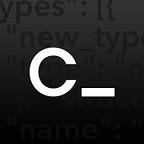Licensing is one of the most important feature of codum. As we have discussed discoverability feature previously, private and undiscoverable code takes up to 80% of the software market while other 20% is open sourced code. The percentage of private code is that high because there used to be no solution to the secure exchange of code as value - its safe monetization.
For instance, look at the situation from the developers perspective when he has to sell his code via any unsecure channel. There is a great chance that the code will leak or will be forwarded by the receiver with no way to control it This way developer gets paid only once although his code is going to be distributed to more than one software product.
That is where codum steps in. It brings in the licensing and “knife” tool to track license violations. Also, users of codum system will have the possibility to choose whether they want to license the code or just to protect it. Open source and free software also benefits from codum by allowing its authors to follow up on license violations like non-derivative clause breaches.
Can programming code be licensed?
Code can be licensed just like any other original work. For example, like photography or music. One might think that there should be tons of the same way thinking developers who are constantly writing the exact same code but there isn’t. Human mind works in very different ways and every developer has his own coding style, uses different development language, approach to a solution.
However, codum CTO Kestutis Januskevicius acknowledges the fact that there will be cases where codum licensing and real world intellectual ownership of non-material property will clash, especially in the early days of codum life. In other words, code used before smart contract licensing will show up to the “knife” tool as a violation even though the developer has given “rights” to his client or vice versa. Kestutis also has a couple solutions for this process and we will talk about it in the next articles here.
How does code licensing work?
Once developer writes the code, public metadata is generated from the code, with the ability for developer to add additional description and documentation to it, as well as licensing conditions, price and access permissions. Metadata allows the code repository to become discoverable via search engines like Google but without exposing the code itself. Once a buyer decides to license out the code, smart contract has to be signed by the buyer in which licensing conditions are predefined by the seller.
Code licensing itself works based on the blockchain smart contract basis, which helps to secure the code by decentralized control and immutability guaranteed by such encrypted nature of the blockchain. Before blockchain was created there was no secure way to sell the code but now code owner can create the key to his product with which code could be accessed, and keep track of its violations.
Codum is way more than just licensing and you will be able to learn more about it from its future articles on codum blog or at codum.io. You can also take part in the fundraising of codum by simply following this participation tutorial.
